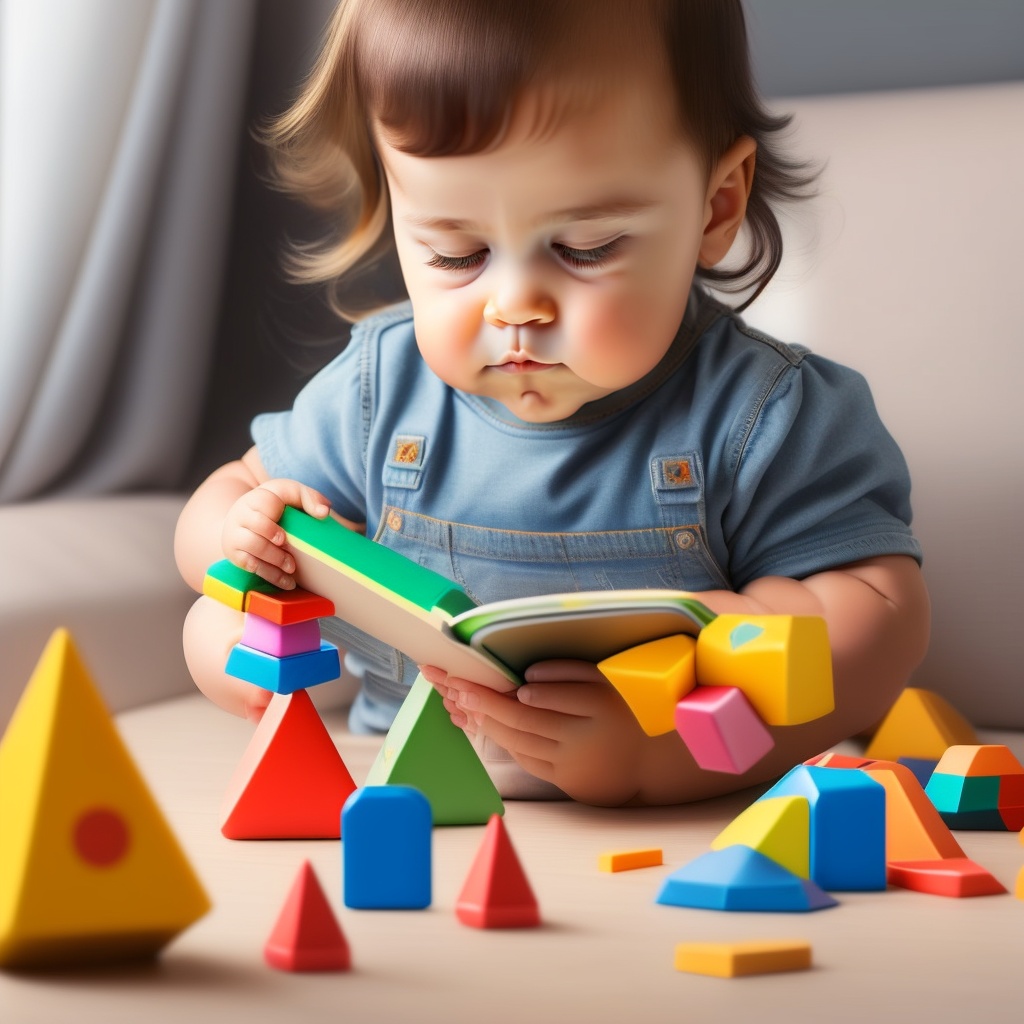Introduction
When it comes to children and their development, games play a significant role. In today’s digital age, gaming has become an integral part of many kids’ lives, whether it’s through virtual activities or online play. However, the impact of games on child development is often misinterpreted and misjudged. In this article, we will delve into the world of gaming and explore how it affects children’s learning, skills, and overall well-being. Contrary to some misconceptions, video games can serve as an educational resource, fostering skill development and contributing positively to a child’s mental and emotional growth.
Understanding What Games Develop in Children
Before we discuss the impact of games on a child’s development, let’s first understand what games actually develop in children. Gaming experiences encompass a wide range of activities that go beyond mere entertainment. Whether it’s solving puzzles, strategizing in virtual worlds, or collaborating with others, games stimulate various aspects of a child’s cognitive abilities. They enhance problem-solving skills, critical thinking, creativity, and spatial reasoning.
The Impact of Games on Learning
Games have a profound impact on children’s learning processes. Contrary to popular belief, gaming can be a powerful tool for educational growth. When engaged in interactive and purposeful gameplay, children absorb and retain information more effectively. Research has shown that gamified learning environments can significantly improve children’s academic performance and knowledge retention.
How Games Help Children Learn
Games create a unique learning environment that caters to the needs of young minds. By integrating challenges, rewards, and immediate feedback, games stimulate active participation and engagement. When kids play games, they become active learners, taking control of their own learning journeys. This autonomy fosters a sense of empowerment and self-directed exploration, resulting in enhanced motivation and a willingness to tackle complex problems.
Why Games Help Children Learn
There are several reasons why games excel in facilitating children’s learning processes. First and foremost, games tap into children’s natural inclination to play and explore. They provide a safe space for kids to experiment, make mistakes, and learn from them without fear of judgment or failure. Games also capitalize on the power of storytelling and immersion, captivating children’s attention and making learning enjoyable and memorable.
Furthermore, games incorporate elements of competition, which can be a powerful motivator for children. The desire to achieve high scores, unlock new levels, or outperform peers encourages kids to persist and strive for improvement. This competitive spirit fosters resilience, determination, and a growth mindset, all of which are valuable skills for future success.
How Games Improve Learning
Games offer unique opportunities for children to acquire and develop a wide range of skills. Through gameplay, kids enhance their problem-solving abilities by tackling complex challenges and overcoming obstacles. They improve their hand-eye coordination, spatial reasoning, and strategic thinking through activities that require precise movements and planning.
Moreover, games promote collaboration and social interaction. Multiplayer games enable children to connect and communicate with others, fostering teamwork, negotiation, and effective communication skills. The online nature of many games also provides exposure to diverse cultures and perspectives, broadening children’s horizons and promoting inclusivity.
Why Children Like Games
Games have a captivating effect on children, and their fondness for gaming experiences is undeniable. But what exactly makes games so appealing to young minds? In this section, we will delve into the reasons why children are drawn to games, shedding light on the factors that contribute to their enthusiasm and engagement.
The Intrigue of Challenges and Rewards
One of the primary reasons children are attracted to games is the inherent challenge they present. Games provide a structured environment where kids can set goals, overcome obstacles, and experience a sense of accomplishment when they succeed. The presence of challenges motivates children to strive for improvement, pushing their boundaries and honing their skills.
In addition to challenges, games also offer enticing rewards. Whether it’s unlocking new levels, earning virtual currency, or obtaining rare items, rewards provide a tangible sense of progress and achievement. Children are naturally driven by a desire for recognition and gratification, and games provide a platform where these desires can be fulfilled.
The Immersive and Interactive Nature of Games
Another aspect that attracts children to games is their immersive and interactive nature. Games transport kids into virtual worlds where they can assume different roles and embark on exciting adventures. This escapism allows children to temporarily step into a realm of fantasy and exploration, fueling their imagination and curiosity.
Moreover, games provide an interactive experience, allowing children to actively participate and make decisions that shape the outcome. The ability to control characters, navigate environments, and influence the game’s narrative grants children a sense of agency and empowerment. This interactivity fosters engagement and makes the gaming experience highly personal and customizable.
Social Connection and Community
Games have evolved beyond solitary experiences and now offer opportunities for social interaction. Online multiplayer games enable children to connect with friends or meet new people who share similar interests. The sense of camaraderie and teamwork that arises from collaborative gameplay enhances social skills and promotes a sense of belonging.
Furthermore, games often have vibrant online communities where players can share experiences, strategies, and accomplishments. These communities provide a platform for children to engage with others who have a passion for gaming, fostering a sense of community and camaraderie.

How Video Games Affect a Child’s Brain
Video games have a profound impact on a child’s brain, influencing various cognitive functions and neural processes. While some concerns have been raised regarding the potential negative effects of gaming, research indicates that video games can have positive effects on a child’s brain development and functioning.
Enhancing Cognitive Abilities
Video games engage multiple cognitive abilities and require various mental processes. Rapid decision-making, problem-solving, and strategic thinking are often integral to gameplay. These mental challenges stimulate the brain and promote the development of critical cognitive skills.
Studies have shown that certain types of video games, such as puzzle-solving games or those that require planning and strategy, can improve spatial reasoning, attention span, and executive functions. These cognitive enhancements can have a positive impact on academic performance and everyday problem-solving.
Improving Motor Skills and Coordination
Action-oriented video games often require precise hand-eye coordination and quick reflexes. These games can enhance motor skills and coordination, as players must respond swiftly and accurately to on-screen stimuli. The repetitive and coordinated movements performed during gameplay contribute to the development of fine motor skills.
Attention and Focus
Video games demand sustained attention and focus, as players need to concentrate on multiple stimuli simultaneously. The fast-paced nature of many games trains children to process information quickly and efficiently. The ability to multitask and switch attention between different aspects of gameplay can translate to improved attention and focus in other areas of life.
Do Video Games Help Develop a Child’s Brain?
The impact of video games on children’s brains is a topic of interest and debate.
While concerns have been raised about potential negative effects, there is growing evidence to suggest that video games can indeed help kids’ brains in various ways.
Cognitive Flexibility and Problem-Solving Skills
Video games often present complex problems that require flexible thinking and adaptive strategies. Players must analyze situations, experiment with different approaches, and adjust their tactics based on feedback. This cognitive flexibility and problem-solving ability developed through gaming can transfer to real-life situations, equipping children with valuable skills.
Memory and Information Processing
Playing video games involves processing and remembering vast amounts of information, including game rules, strategies, and in-game events. This demand for memory and information processing can enhance a child’s working memory capacity and overall cognitive abilities. This improved memory and information processing can have positive effects on academic performance and everyday tasks.
Social Skills and Communication
As mentioned earlier, multiplayer online games facilitate social interaction and collaboration. Engaging with others in a virtual environment fosters the development of social skills such as teamwork, cooperation, and effective communication. Children who participate in multiplayer games often learn to work together, negotiate, and resolve conflicts, which are essential skills for building positive relationships.
Conclusion
It is crucial to recognize the positive impact of games on a child’s development. Contrary to common misconceptions, video games are not mere time-wasters but powerful tools that contribute to a child’s psychological, emotional, and educational well-being. Through gaming, kids develop essential skills, engage in meaningful learning experiences, and cultivate valuable qualities that will serve them throughout their lives. As parents and caregivers, it is important to embrace the potential of games and guide children in harnessing the benefits they offer. By understanding and leveraging the impact of games on child development, we can unlock the power of gaming and ensure our kids will have a healthy, bright future.
The impact of video games on child development is far-reaching and multi-faceted. From improved problem-solving skills to increased empathy, the benefits are numerous and can be seen in children of all ages. For instance, educational video games have been found to improve math and science scores, while games that require a certain level of strategy can improve decision-making skills. Social video games help kids learn to interact with others, build relationships, and develop communication skills.
Children are naturally drawn to games due to the intriguing challenges, rewards, interactivity, and social connections they offer. Video games can have a significant impact on a child’s brain, enhancing cognitive abilities, motor skills, attention, and problem-solving skills. While it is important to balance gaming with other activities, the positive effects of video games on a child’s brain cannot be disregarded. By understanding and harnessing the potential of games, we can leverage their benefits to support a child’s cognitive development and overall well-being.




